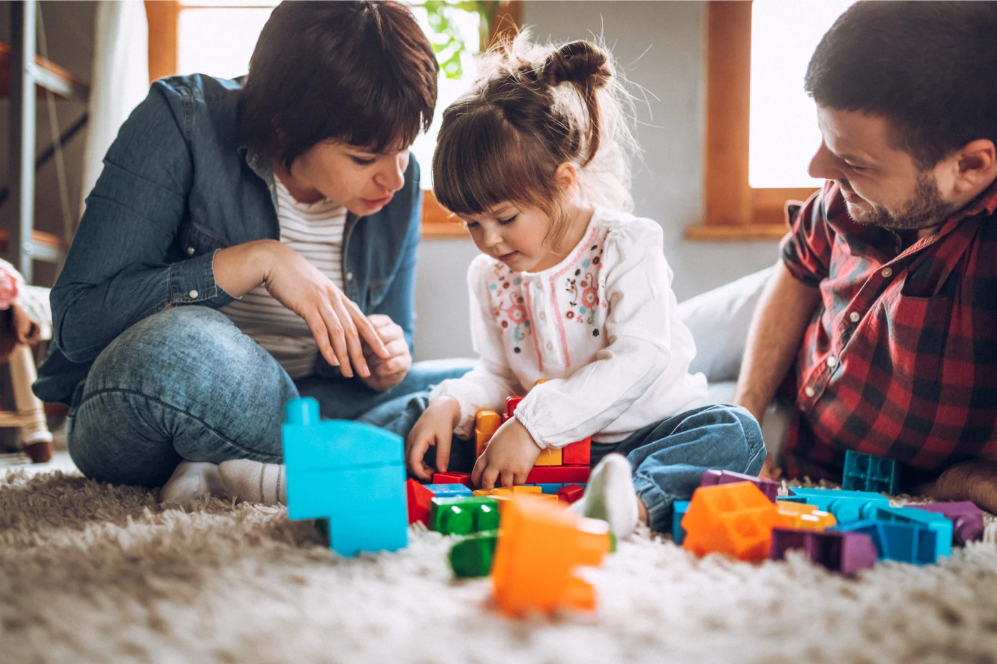Supporting a child with autism at home is a rewarding journey filled with opportunities for learning, growth, and connection.
While professional therapy provides essential tools, reinforcing skills in a familiar environment helps children feel comfortable and confident in their development. By incorporating small, intentional strategies into daily life, parents and guardians can create a nurturing and engaging space for their child to thrive.
Create a Predictable and Comforting Routine
Children with autism often feel more at ease when they know what to expect. Establishing a daily schedule with clear, consistent routines can help reduce stress and make transitions smoother. Using visual schedules, timers, or simple verbal cues can empower your child and give them a sense of control over their day.
Use Visual and Hands-On Learning Tools
Many children on the autism spectrum are visual learners, so incorporating picture cards, visual timers, and social stories can help with communication and understanding expectations. A “first-then” board (e.g., "First clean up, then story time") can also be a great way to encourage participation in daily activities.
Encourage Communication in Ways That Feel Natural
Every child communicates in their own way—whether through words, gestures, sign language, or communication devices. Encouraging any form of expression and celebrating their efforts helps build confidence. Simple games like singing, storytelling, or using favorite toys to model conversations can make learning communication skills fun and engaging.
Create a Sensory-Friendly Environment
Children with autism often experience the world in unique ways, and a sensory-friendly space can help them feel comfortable and regulated. A quiet area with soft lighting, cozy blankets, fidget toys, or calming music can provide a soothing retreat when they need a break. Pay attention to your child’s sensory preferences and adjust their environment to support their comfort.
Build Social Skills Through Play
Play is a natural and joyful way for children to learn social skills. Simple activities like taking turns in a board game, role-playing daily scenarios, or using dolls and action figures to practice conversations can help reinforce social interactions in a relaxed and playful way.
Reinforce Positive Behaviors with Encouragement
Praise and positive reinforcement help children feel proud of their achievements. Whether it’s a high-five, a sticker, or a heartfelt “Great job asking for help!” recognizing their efforts encourages continued growth. Focus on strengths and progress rather than perfection.
Keep Movement and Active Play in the Mix
Physical activity is a great way to help children stay regulated and focused. Whether it’s jumping on a trampoline, stretching, dancing, or a simple nature walk, movement helps with energy levels, coordination, and overall well-being. Find activities that your child enjoys and make them part of your daily routine.
Turn Everyday Moments into Learning Opportunities
Daily tasks like cooking, setting the table, or organizing toys can become natural opportunities for learning. Counting ingredients, sorting colors, or following step-by-step instructions help reinforce important life skills in a fun and practical way.
Stay Flexible and Celebrate Progress
Every child learns at their own pace, and flexibility is key. Some days will be smoother than others, and that’s okay! Celebrate the small victories—whether it’s trying a new food, using a new word, or completing a simple task independently. Progress comes in many forms, and every step forward is a reason to be proud.
Seek Community and Support
You are not alone on this journey. Connecting with other parents, support groups, and autism organizations can provide encouragement, new strategies, and a sense of community. Partnering with therapists and educators can also help tailor strategies that work best for your child’s unique needs.
Final Thoughts
Parenting a child with autism is filled with moments of joy, learning, and growth. By embracing your child’s strengths and supporting their unique way of experiencing the world, you’re creating a loving environment where they can truly shine. Small, intentional steps at home can have a lasting impact, helping your child build confidence, independence, and happiness.

